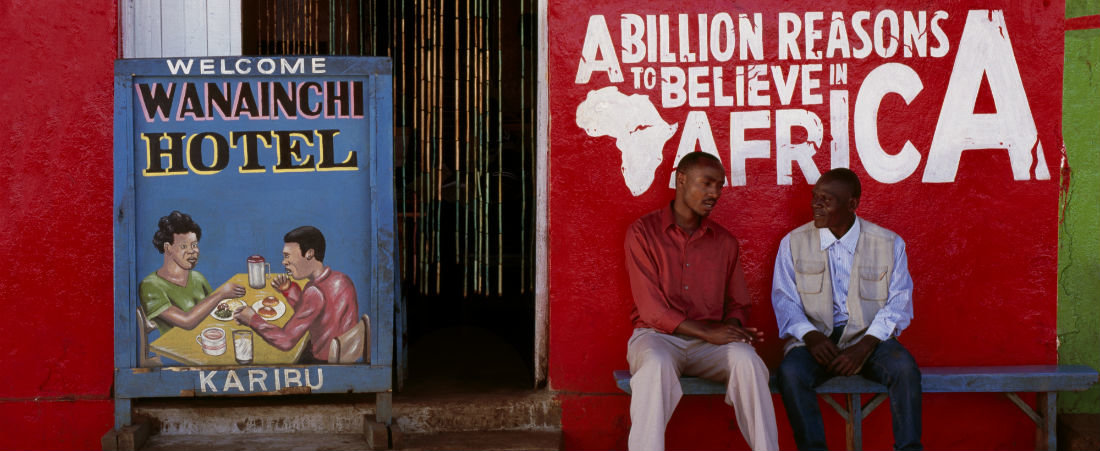When South Africa joined Brazil, Russia, India and China in being considered the fifth member of the BRICS grouping in 2011, it sent a powerful message about Africa’s increasing significance in a changing global economic order.
The elevation of Africa’s leading economy into this group was greeted with some scepticism. South Africa’s economy is tiny relative to the other BRICS nations. However, as a representative of the African continent, its membership offered the promise of greater integration for Africa’s rapidly growing economies.
Fast forward two years and last year’s BRICS summit – held on African soil for the first time – saw no fewer than 18 African heads of state troop to South Africa to meet the BRICS leaders. Many read this as a sign of a maturing of the relationship between Africa and BRICS countries.
China, the group leader by a wide margin, has been a key driver of Africa’s economic rise, with trade standing at $160bn in 2011 up from just $9bn in 2009. China’s demand for African commodities has boosted prices while offsetting weak demand from traditional partners in the West.
China is still recording one of the highest rates of growth in the world, but a forecast 7.4% for 2014 is a big drop from the 10 to 12% growth achieved in the last decade. With slowing growth, China needs to curb its insatiable appetite for commodities. This may not sound like good news for Africa but China’s desire to move up the value chain could see Africa pick up the slack as the next frontier for low-cost manufacturing.
While lagging behind in trade and investment volumes, India sees its relationship with the eastern seaboard of Africa as an opportunity to expand on centuries of contact. Its engagement has been different from the state-led Chinese model. Private sector conglomerates like Tata and Essar are winning contracts across the continent.
Ethiopia for instance has seen a $1 billion investment into its agricultural sector from India. Since 2003, total Indian vehicle exports to Africa have swelled by over 1,000% and by 160% since 2008 – by far the fastest rate for this product group among Africa’s traditional and BRICS trading partners.
Brazil’s recent write-off of $900m of debt owed by African countries signals a strategy to redefine its relationship with the continent. Brazil-Africa trade has increased five-fold over the last decade according to official sources. Companies like Vale and Oderbrecht are making inroads, while Embraer aims to double the number of its aircraft flying the African skies over the next twenty years. Brazil is also exporting its successful agricultural models to countries like Ghana and Tanzania.
The entry of the BRICS has helped to fill a gap left by Africa’s traditional partners in the West. Before the 2008 crisis, Africa relied mainly on the West for exports and connectivity to the wider world. However, the financial crisis prompted African countries to opt for a great diversity of routes.
Now, these traditional partners are playing catch up. US President Barack Obama’s recent trip to Africa was considered too little too late by many commentators on the continent. A strategic Heads of States summit in Washington in August is now being discussed as a key platform to re-engage a continent that has felt ignored by a president with strong family ties to Africa.
Europe is still Africa’s largest trading partner. The global economic crisis seems to be fading and Europe is seeking to recapture its pole position on the continent as growth stagnates at home. A looming deadline for African states to sign contentious Economic Partnership agreements will continue to strain relations and may frustrate efforts to boost trade between the two regions.
Lack of market access and unfair trade policies are an often cited reason for low levels of African exports. But internal barriers also need to be addressed including investment in infrastructure and skills, and reducing red tape to improve competitiveness.
The continent’s biggest hope for increased economic growth lies in regional economic integration, which would provide the size of markets and opportunities that would attract investors. Intra-African trade has more than doubled over the past five years, but there is huge potential yet to be unlocked. The East African Community has shown great promise with plans to integrate at pace. The Southern Africa Development Community and Economic Community of West Africa States are also slowly overcoming challenges. African leaders have proposed the creation, by 2015, of a free trade area that will combine 26 countries in eastern and southern Africa into a single market worth $2.6 trillion.
As the world economic order changes, Africa too must change if it to take it rightful place in the global economy.
Africa’s integration into the global economy

